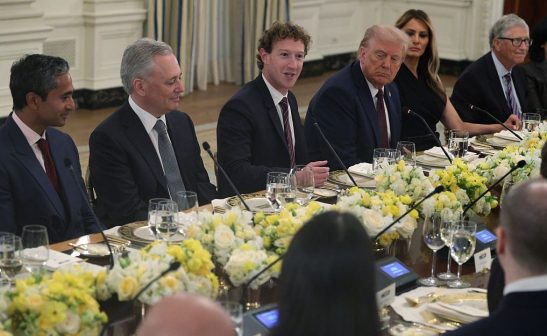GSA emphasizes open dialogue, collaboration in tech transformation

The General Services Administration is stressing open dialogue, collaboration and stakeholder engagement early on in its push to become the leader in federal technology transformation.
The top technology leaders across GSA gathered Thursday for the agency’s first technology industry day to discuss their work behind the newly launched Technology Transformation Service. While the new service aims to make federal agencies better and savvier buyers of technology, it’s become apparent for those involved that an important first step on that path is extending the discussion to industry technologists, partner agencies and the American citizens who should ultimately benefit from agencies’ services.
“As GSA is moving and changing, it does have an effect on our partner agencies, as well as our industry partners, as well as those who are ultimately receiving the service — the American public,” Administrator Denise Turner Roth said. “And so as a result we want to make sure that the changes that we’re making internally are not mysterious, but rather there is a common effort and partnership that is occurring between us and our stakeholders to really be able to move forward in the most effective way possible.”
Turner Roth said this is something happening “across the board at GSA.”
“We’re working in a very concerted way to be more transparent with all of our steps, what our thinking is, where we think we’re going,” she said. “And if you don’t hear us saying it, it’s probably because it’s not something we’re keeping from you but rather just something we haven’t said or we haven’t thought of, or we’re still looking for the best ideas. We do want to be transparent with what we’re doing, we do welcome the fact that we don’t have all the answers for everything that we do.”
The months-old Technology Transformation Service is a sort of supergroup of GSA’s technology entities, like the Federal Acquisition Service’s Office of Integrated Technology Services and 18F, combining their efforts to help federal agencies improve the way they buy and adopt new technologies — by absorbing “first-move risk,” as Aaron Snow, executive director of 18F and deputy commissioner of TTS, puts it and showing their partners the right steps to take.
“We can get out and provide examples of new, modern methodologies, modern tools,” Snow said. “And if it doesn’t work — well then we turn that into a teaching moment.”
Many agencies ready to take the plunge to a new technology or adopt a new acquisition methodology, and so often their common concern is: “How do you guys take that first step?” Turner Roth said. So, 18F and TTS “go out to agencies and sit beside technologists and talk about what’s available … and what this new technology adoption may look like,” she said. “It’s that that we’re trying to create over and over again.”
TTS’ leaders have been at work behind the scenes over the past few months developing the mission and roadmap for the new service, and now they want those on the outside — particularly the technology vendors who make their business providing services to the government — to help make sure they get it right.
“This is a formative time for us, and part of this forum today and the efforts that we’ll do here on out are helping to inform how do we develop and shift and shape the Technology Transformation Service,” Turner Roth told FedScoop after the event. “I’m not sure how many times the public sees a new service come online, but this is one of those times, and we’re very much seeking their input to help shape and form that effort.”
“The next big thing in govtech is you,” Snow said. “We are making efforts across the board here at TTS, FAS and 18F to get better at engaging you in more different ways faster and more easily to make sure that we are able to take full advantage of” the innovation and talent in the private sector.
Transparency and stakeholder engagement are nothing new to these organizations. 18F publishes multiple blogs a week about how and why it did something it did. It also hosts all of its code in the open on GitHub.
With a number of massive contracts currently up for recompete, the Federal Acquisition Service has also increased its outreach and dialogue with vendors.
“We’ve had many industry days, we had a great response to the [request for information], the draft [request for proposals], a lot of input … we want to talk to you about it,” Mary Davie, assistant commissioner of ITS, said of the host of new contracts. “This is so important to us. We really want to make sure we get this right … So this is going to result in a dialogue between us and industry.”
Likewise, with other agencies, Davie has observed, “today more than ever, maybe in the last couple years, there’s real interest to want to work together, to want to do things together, and not to try to go it alone anymore.”
However, a lack of transparency was one of the key criticisms waged against 18F by House lawmakers and industry trade groups in a June hearing hosted by the Oversight and Government Reform’s IT Subcommittee.
Trey Hodgkins, public sector senior vice president for the IT Alliance for Public Sector, said during the hearing that “there is a general lack of clarity and understanding about these programs. What are they doing? What are they not? And how can they be expected to operate?”
Turner Roth told FedScoop that GSA “heard the hearing loud and clear, that whatever we thought we were doing from a communication standpoint, we needed to do more.” But even before then when the agency was conceiving the idea of TTS, “it was always in our foresight that we needed to first look internally at what we needed to change and then share and seek engagement externally,” she said.
“Everything we do is either trying to serve a need for a federal agency or trying to bring in an industry partner that helps us meet that need. And so from my vantage point, the only way we can do that is to let people know, ‘Hey, we need what you have,'” she told FedScoop. “In order for us to be successful, we need to have that open dialogue.”






